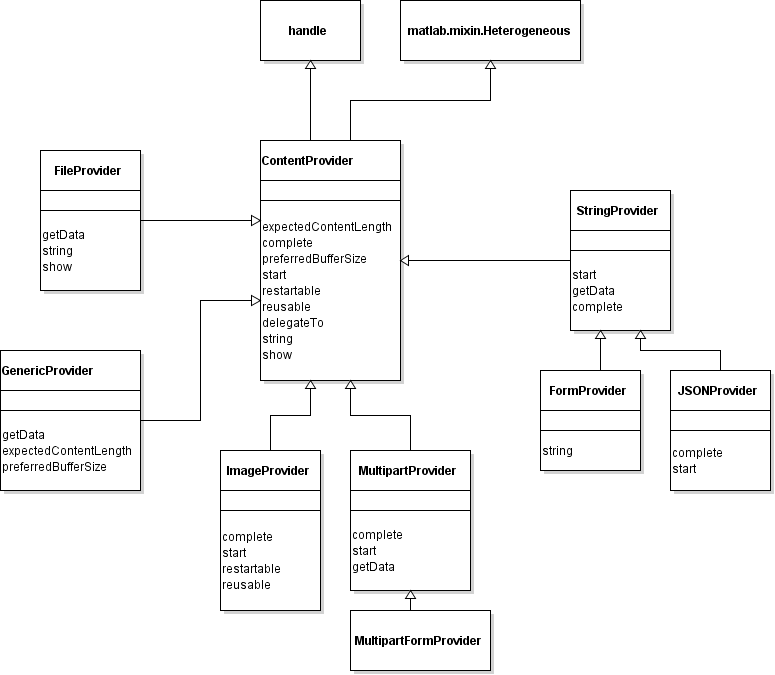matlab.net.http.io.GenericProvider 类
命名空间: matlab.net.http.io
超类: matlab.net.http.io.ContentProvider
HTTP 有效负载的通用 ContentProvider
描述
使用 GenericProvider 对象以流方式传输函数生成的自定义数据,而不是创建 ContentProvider 子类。
matlab.net.http.io.GenericProvider 类是一个 handle 类。
创建对象
描述
provider = GenericProvider( 构造一个 getDataFcn)ContentProvider,使用函数 getDataFcn 获取数据缓冲区。此构造函数将 GetDataFcn 属性设置为 getDataFcn。
provider = GenericProvider( 将 Content-Length 字段添加到值为 getDataFcn,contentLength)contentLength 的消息的标头中。此语法可作为直接向标头中添加 Content-Length 字段的替代方法。在这种情况下,设置 stop=true 之前 getDataFcn 返回的数据长度必须与此长度完全相等。
provider = GenericProvider( 使用附加选项构造一个 getDataFcn,contentLength,bufferSize)ContentProvider。如果 contentLength 非空,构造函数将设置数据的长度。如果 bufferSize 非空,构造函数将设置数据缓冲区的最大大小。
输入参量
属性
方法
详细信息
版本历史记录
在 R2018a 中推出
